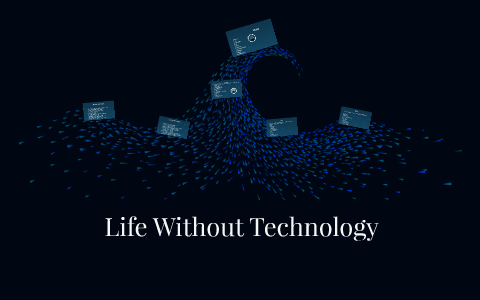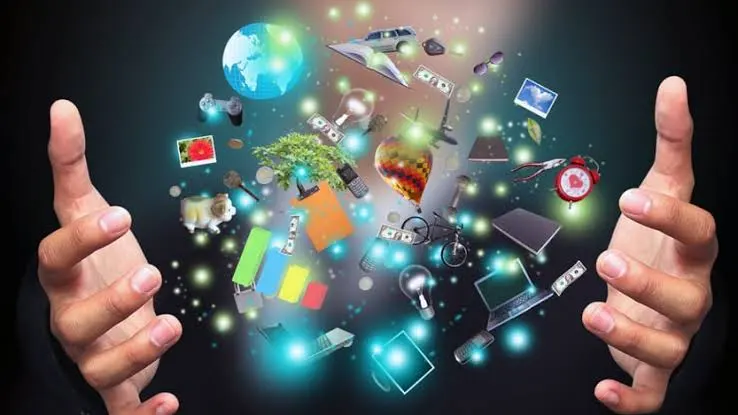
Introduction
Technology has become deeply ingrained in almost every aspect of modern life, from how we work and communicate to how we spend our leisure time. It’s nearly impossible to imagine contemporary society without the Internet, smartphones, computers, air travel, and all of the other technological advancements we’ve become reliant on. But what if all of that technology suddenly disappeared? How would the loss of these innovations impact different facets of society? This article will explore some of the major ways that life without technology would affect the economy, infrastructure, communication, education, entertainment, and more.
Impacts on the Economy
One of the most significant impacts of losing modern technology would be on the global economy. E-commerce and digital transactions facilitate a huge percentage of business dealings and financial exchanges today. Without the ability to instantly process payments and investments online, many economic activities would grind to a halt. International trade and supply chains would be disrupted without air and sea freight enabled by advanced vehicles and logistics technology. Even basic economic functions like banking would be challenged without networked computer systems to manage accounts and transactions. Losing these technologies would lead to economic stagnation or even collapse in many sectors. The resulting financial turmoil and unemployment would lead to broad societal instability.
Disruption of Infrastructure
Critical infrastructure that society depends on would also be severely affected by a loss of technology. Power plants, electrical grids, telecommunication networks, and other utilities rely on complex technological systems to operate. Without these, cities would lose electricity, running water, sewage treatment, and other basic necessities that support urban living. Modes of transportation like air travel, railways, and gasoline-powered automobiles would halt without the machinery and logistical systems used to build and maintain them. Supply chains for food and other critical resources would break down without long-range shipping and refrigeration. The failure of these interconnected infrastructures would make everyday life exponentially more difficult.
Communication Challenges
Losing modern communications technology like the Internet, cell phones, and satellites would drastically impact the spread of information and people’s ability to interact. Things we take for granted like email, texting, video chat, social media, and web browsing would disappear. Long-distance communication would rely solely on postal mail or landline telephones, forcing much slower exchanges of information. It would be extremely difficult to coordinate efforts across distances without instant data transfer and networking capabilities. Isolation would increase between cities, countries, and even neighbors without technological communication channels. This could lead to more fragmented, closed-off communities.

Transforming Education
Education would also be unrecognizable without innovations like computers, the Internet, interactive whiteboards, and educational software and apps. Brick-and-mortar schools depend on technology for everything from research to assignment submission and grades. Remote learning, now common for many students, would no longer be possible either. The loss of these tools would require overhauling teaching methods, curricula, textbooks, and student-teacher collaboration. Both the skills taught and the delivery of education would need to become much more rudimentary. The quality of education and sharing of knowledge would decline dramatically without technological enhancements.
Impacts on Entertainment
Losing technology would profoundly impact people’s options for entertainment and recreation. No more social media, video games, virtual reality, streaming TV/movies, e-books, online music, YouTube, cameras, or any other tech-based entertainment sources. Even pastimes like photography, music, and film/video would become challenging without contemporary devices and software. Sports reliant on technology like motorsports, golf, cycling, etc. would not be possible either. Forms of in-person entertainment like concerts, sporting events, and theme parks would be limited by communication and transportation challenges too. People’s sources of leisure and relaxation would predominantly revert to more basic activities like reading physical books or playing non-electronic games.
Other Societal Shifts
The loss of contemporary technology would also lead to many other broad societal shifts. Things like automating tasks, monitoring health, or enhancing safety with technology would disappear. More manual labor and in-person interactions would become necessary again. The pace of life would generally slow down across realms like work, school, commerce, and governance. With less connection between distant areas, communities and culture would become more localized. Coping without technology would require fundamental changes in social organization and values. This transition would inevitably bring stressful disruptions across many aspects of human life and activity.
Conclusion
It’s clear that losing access to modern technology would have dramatic, far-reaching impacts on society. Nearly every facet of contemporary life depends on innovations like electronic networks, advanced machines, instant data sharing, rapid transportation, and more. While humans lived without much technology for millennia, the modern world is now built around these tools. Attempting to function without them would mean overturning economic, governmental, educational, and social systems. Such a profound transition would require humans to completely re-adapt many ingrained aspects of civilization. This thought experiment highlights just how deeply intertwined technology is with human progress and modern life.






